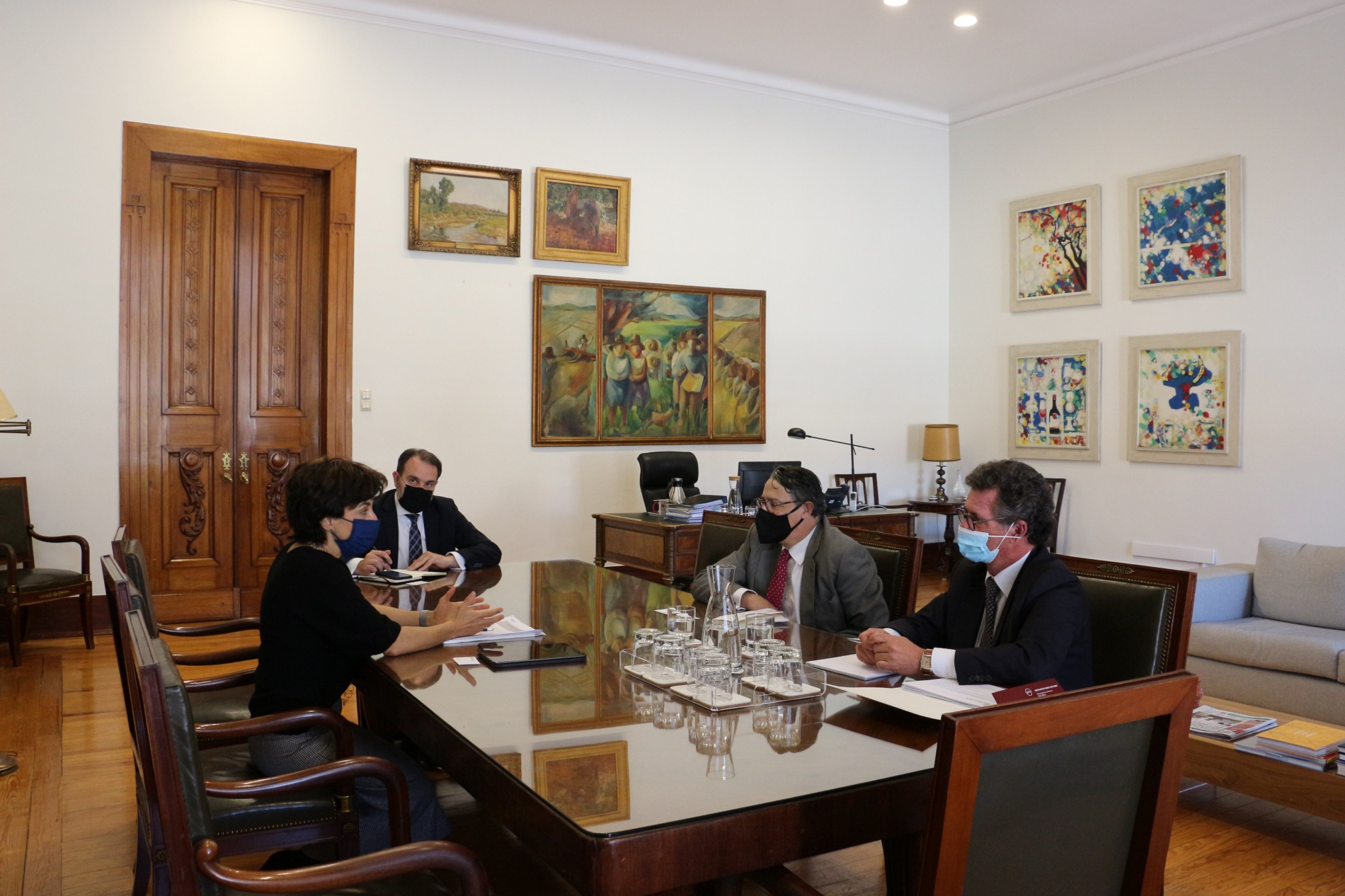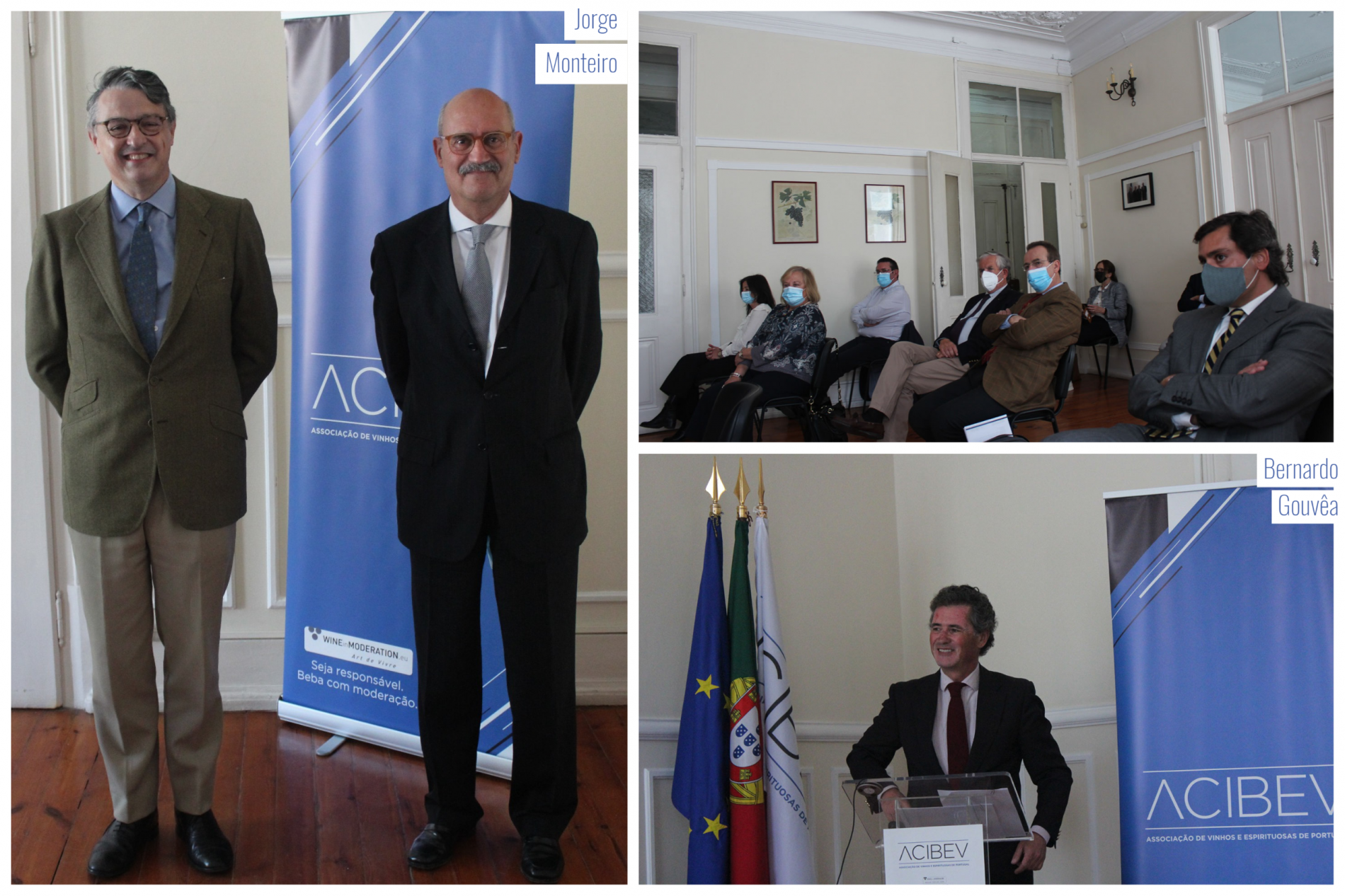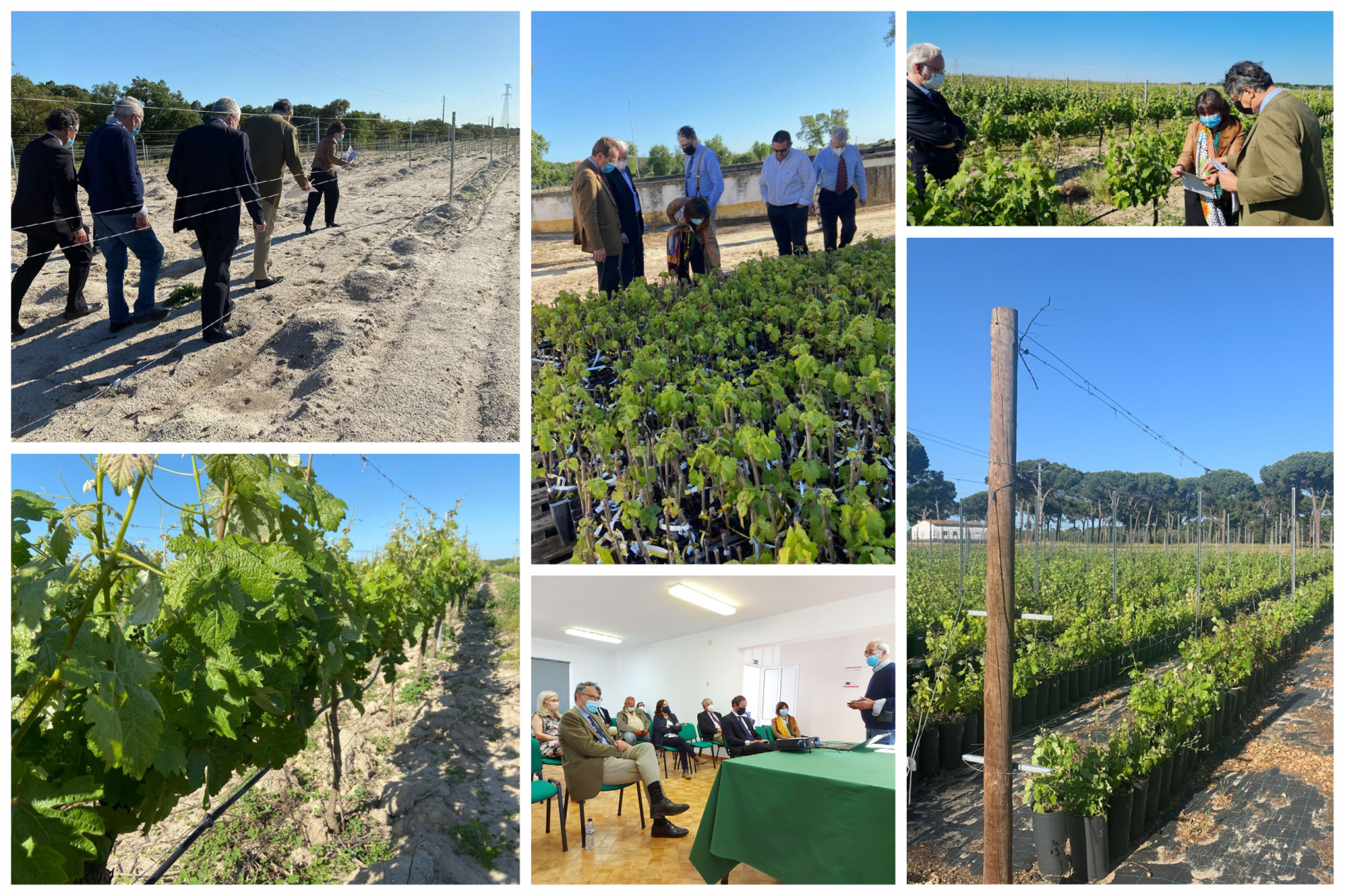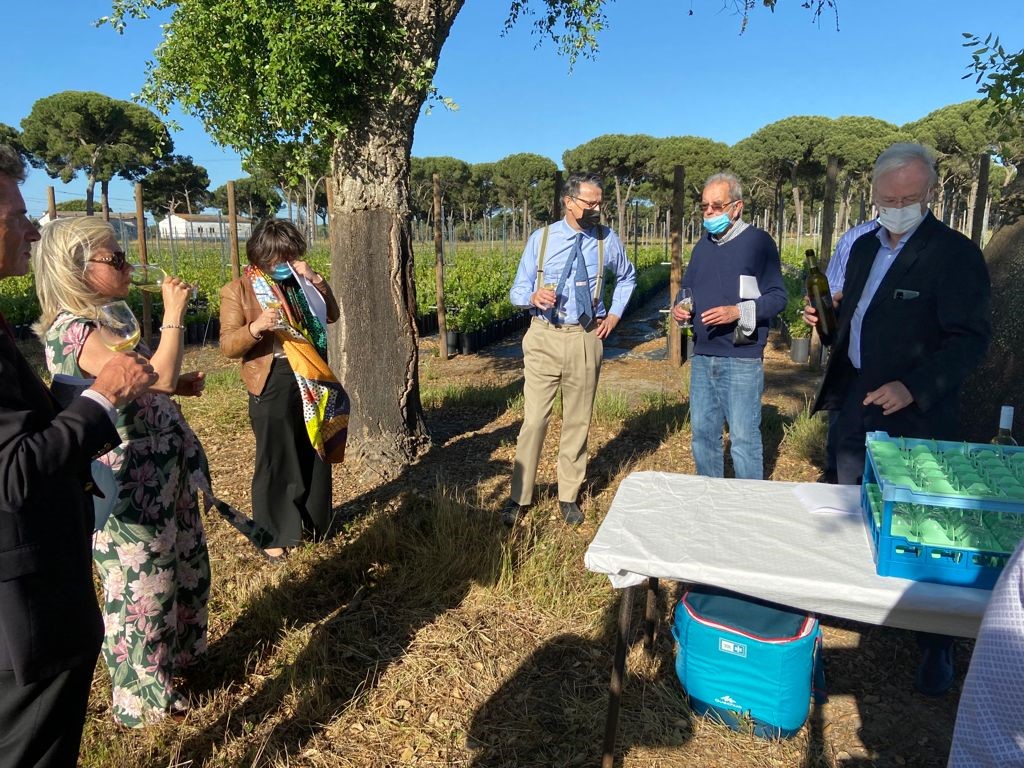The pandemic halted important activities such as direct contact with Member countries at their working environment. The evolution of the sanitary conditions brings new signs of optimism, allowing the return of physical meetings, even if under strict conditions.
The official visit of the Director General of the OIV, Pau Roca, to Portugal last week is proof of this. It represents the kick-off for future visits to different countries, aiming to strengthen the important contact with its 48 Member Countries.
Portugal: a founding member of the OIV since 1924
During the two days spent in Portugal, Pau Roca participated in several activities with different representatives of the sector. On 5 May, accompanied by the President of the Instituto da Vinha e do Vinho (IVV), Bernardo Gouvêa, the OIV Director was received by the Portuguese Minister for Agriculture, Maria do Céu Antunes. A meeting where the strong cooperation and dynamism of the country with the OIV were highlighted.

Meeting with the Portuguese Minister
for Agriculture, Maria do Céu Antunes
© Ministério da Agricultura de Portugal
The following day, ACIBEV: Associação de Vinhos e Espirituosas de Portugal (Association of Wines and Spirits of Portugal), organised a hybrid conference in which the Director General spoke about the State of the Vitivinicultural World in 2020. A presentation followed by session of questions & answers with the participation of personalities from the Portuguese wine sector. In the conference opening speech, ACIBEV’s President Jorge Monteiro welcomed the OIV Director, thanking him for his presence and contribution to the sector. Considerations shared by Bernardo Gouvêa, who showed his high appreciation of the work developed by the OIV and its close relation with Portugal, when closing the conference.

To top the agenda, on the same day Pau Roca had the opportunity to visit the Experimental Centre for the Conservation of the Variability of Autochthonous Grapevines, managed by the Portuguese Association for Grapevine Diversity (PORVID*) under a partnership protocol signed with the Portuguese Ministry of Agriculture.
Portuguese research reflected in OIV resolutions
This centre, managed by PORVID, is a pioneer infrastructure dedicated to the integral conservation of grapevine varieties’ diversity (intravarietal diversity) aiming to add value, adaptability and sustainability to vitiviniculture. Ten years after its foundation, over 30 000 genotypes are already conserved with the final aim being to secure 50 000 of all 250 varieties native of Portugal.
This living genetic bank materialises innovation from knowledge through the provision of polyclonal selections for both grape growers and winemakers, a novel methodology created in Portugal and, since 2019, recognised by the OIV through a resolution unanimously adopted by all its Member Countries. This recognition made the methodology globally accessible, opening the path for global conservation of the original diversity of ancient grapevine varieties in vineyards across the world. See resolution OIV-VITI 564B-2019

A result of the work developed by the centre could be appreciated at the end of the visit with a tasting of wines experimentally made from little known Portuguese varieties. The tasting was guided by António Graça, OIV’s ENVIRO’s expert group Secretary who represents Sogrape at PORVID. Sercialinho, Tinta Francisca or Touriga Fêmea were among the tasted wines, varieties that according to Graça “could be extinct nowadays if this conservation work had not been started 40 years ago”.
Pau Roca thanked the visit and the presentation of the project, stating that "in this type of approach for the conservation of biodiversity and understanding of nature lies the future of world vitiviniculture".
The OIV Director General concluded by congratulating those responsible for the results already visible and for involving the OIV in its worldwide dissemination.
